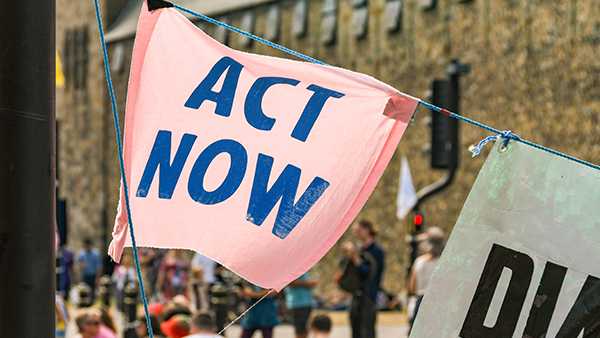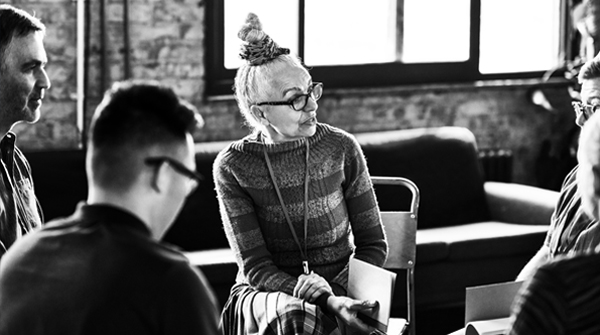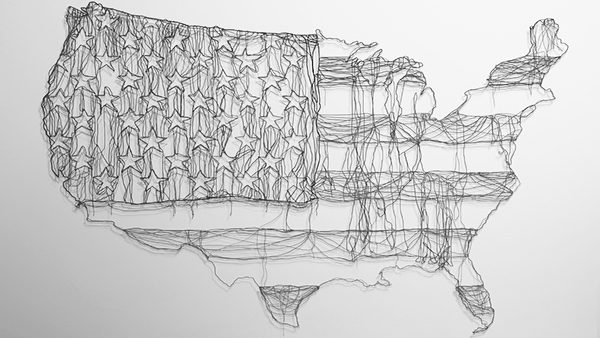In Saturday’s Guardian psychoanalyst and past RSA speaker, Darian Leader, writes:
‘The shopping addictions, sex addictions, internet addictions, and phone addictions that fill the diagnostic marketplace have become seen as addictions because they are apparently not under conscious control. But the real addiction that lies behind them is autonomy addiction: the illusion that we can ever truly be masters of ourselves’
The idea that society and its dominant norms more than individual sickness lie behind the increased prevalence of mental illness is not new but, still, it deserves more attention. Just as public health advocates talk about an ‘obesogenic’ culture, so we should be aware of the aspects of modern society that generate mental illness or lead us to pathologise attitudes or behaviours that might previously have been tolerated as merely eccentric or unfortunate. Wilkinson and Pickett and Michael Marmot are among those who have explored how elements of modern capitalist society, particularly inequality, lead to higher levels of anxiety and depression.
I have been examining this issue from a rather different angle. In my talks about coordination theory (based on the work of Mary Douglas and her followers) I describe the core ways in which we understand and approach the challenge of getting people to do things together.
It sounds basic, but my account is ambiguous about whether there are three or four modes of coordination. The problem being that while the first three – individualism (autonomy, competition, enterprise etc.), hierarchy (leadership, strategy, expertise etc.) and solidarity (values, belonging, fairness etc.) are all active forms of coordination the fourth, fatalism, is passive or merely oppositional.
The reasons people advocate each mode can be structural or individual. On the one hand, the assumptions, attitudes and actions of groups are shaped by the context in which people find themselves. Whatever our predispositions, we are likely to view the world individualistically in a shopping mall, solidaristically in a place of worship and hierarchically when we crave order. Some people may react against the prevailing mode, for example, expressing disdain for consumerism in a department store, nevertheless the context is shaping our response.
On the other hand, each of us has our biases. Some people tend to prefer one mode almost whatever situation in which they find themselves, something captured in phrases like ‘she’s a born leader’ or ‘he loves to be a rebel’. But even if we are less predictable, various largely random priming factors – how we happen to feel about ourselves that day, something we have read, heard or seen, how our friends are behaving – can predispose us to adopt a stance toward social action. Having done so we can quickly become identified with that stance.
So, for example, someone knocks at our door expressing concern about council plans to allow a supermarket chain to open a new store in our local shopping arcade. Do we decide at that moment to get involved and having done so end up being one of the campaign’s leaders; or perhaps we assume that the council knows what it’s doing, or feel that it’s pointless to oppose the decision, or maybe even think about the personal convenience provided by a local supermarket. Our reaction could reflect deeply held convictions about consumer capitalism or the local state, but it might equally be a response to something we just read or watched, or the culmination of a gradual feeling of guilt about opting out of community matters. How often we do say out loud ‘I don’t know why I ever got involved in this?’ and to ourselves ‘am I really so sure about the position I seem to have adopted?’
Fatalism too has both structural and individual determinants. I suggest that the former situations, when fatalism is a prevalent social norm, reflect cultures in which it seems impossible to combine the three active modes of coordination. For example, in Eastern Europe before the fall of the Berlin Wall, when solidarity was fake and individualism supressed, the culture was dominated by a deadening mixture of hierarchy and fatalism. Equally, in the investment banks before the credit crunch the absence of effective hierarchical control or solidaristic responsibility meant that no one felt able to tackle the enveloping madness of financialisation – rampant individualism was accompanied by a profound ethical fatalism.
But fatalism also has its individual side – a feeling that change is impossible or that even when it happens it won’t address the things that really matter. This is a voice we tend to feel we should ignore. All the modes of coordination offer useful insights and methods which can contribute to effective social action, but while modern society acknowledges the potential value of leadership, shared values and individual initiative, fatalism tends to be deprecated. Yet it can be soundly based.
A great deal of research shows that human beings have an in-built tendency to be too optimistic about their ability to achieve their stated goals. Indeed, since a ground breaking survey in the 1970s undertaken by Lyn Abramson and Lauren Alloy the phenomenon of depressive realism describes how people with low level depression are often more accurate in many of their predictions than those who report good mental health.
The deeper basis for fatalism concerns the human condition. To function it is necessary to see ourselves as unique, self-governing and virtuous even though we are members of a breed of animals largely propelled by our unthinking instincts and no more virtuous than the next member of the species. More bleakly still, we know we will die.
For many thinkers – amongst the most eloquent being Ernest Becker - it is the shadow of death and our deep need to deny it which propels us through life in a state of manic delusion. Modern Western culture doesn’t help. Offering hope about death has been religion’s USP. Christianity in particular making it both heroic and merely transitional. Religious iconography can be very fatalistic precisely because, having been promised immortality, believers are less daunted by death. In today’s irreligious times most of us lack even this comfort blanket. We live in a post-fatal culture.
Thus the first fatalistic presumption, that change tends not to achieve its goals, is often right while the second, that even when it does succeed it won’t change the hardest things about being human, is arguably always right.
In neither case is the conclusion I want to draw that we should succumb to pessimism. In relation to the chances of success, fatalism that encourages caution and scepticism in the face of blind optimism can be vital to making good decisions, while fatalism that fosters cynicism and apathy is not. In relation to the tragedy of being human, fatalism can encourage deep insight and detachment but we must somehow resist the siren call of despair.
Just like individualism, hierarchy and solidarity, we need to understand what fatalism has to offer as well as the malign consequences of it becoming dominant. Yet, as I’ve said, in societies like ours to express scepticism or a deeper realism about our human condition can be portrayed as damaging to common endeavour, self-indulgent or, worst of all, as a sign of personal pathology. Those who admit to fatalism can find themselves labelled and, as often happens with labels, internalise the characterisation coming to think that their own thoughts, indeed their minds, are unhealthy.
I am not for a moment suggesting that profound clinical depression is a socially constructed condition. But might the prevalence of the low level form, which leads hundreds of millions of people to see themselves as somehow inadequate or needing treatment, reflect our culture’s unwillingness to acknowledge fatalism as an accurate and useful way of seeing the world?
Related articles
-
The public are ready to go further and faster on net zero
Anthony Painter
The public are ahead of policy-makers and, indeed, most of the business world. COP26 is an enormous opportunity to catch up. Global leaders should take it.
-
Can progressives ever stop the in-fighting?
Matthew Taylor
Biden's victory has caused the left and moderates to fracture again.
-
Can President Biden bring America together again?
Anthony Painter
There is a long road ahead for the new president.




Join the discussion
Comments
Please login to post a comment or reply
Don't have an account? Click here to register.
An important piece. I like the rebranding of cultural theory as coordination theory and always felt you were missing a lot by neglecting fatalism; it's the least action-oriented of the four modalities, but it's psychologically rich and casts a useful shadow on the limitations of the other three.
I read your piece as saying:
I/S/H: "What would it take for you to be less fatalistic?"
F: "For the three of you to get your act together, together, on an ongoing basis (but that's never going to happen...)"
The fatalist may never become individualist, solidaristic or hierarchical. Perhaps their main function then is to act as a spur; a shared, non threatening reference point to help the others clarify their shared purpose (Not quite 'the enemy of my enemy is my friend' but almost...)
I am not sure fatalism can ever be 'accurate', because that would make it self-serving - "it's hopeless *because* there is no point in doing anything" is usually more like "It's hopeless because we are not willing to try."
Fatalists can offer a reality check though, challenging delusion and excessive optimism that underpins so much action. The negativity of fatalists can play a positive role by prompting deeper and difficult soul searching among the other three. Self-knowledge is often bad news.